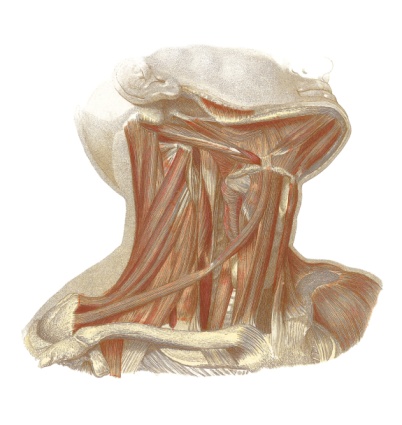
Head & Neck Cancer Treatment
If you or a loved one are facing head and neck cancer, you need the most advanced and effective treatment available. That’s where Penn Medicine Becker ENT & Allergy comes in. Our team of experts is dedicated to providing state-of-the-art solutions to help you overcome this challenging disease. From innovative therapies to cutting-edge techniques, we’re here to help you regain your health and live life to the fullest. Let’s explore how we can work together to conquer head and neck cancer.
Head and neck cancers are classified as cancers that start in different areas of the head and neck, such as the throat, larynx, nose, mouth, sinuses, salivary glands, or lymph nodes of the neck.
At Penn Medicine Becker ENT & Allergy, our expert team of surgeons, endocrinologists, pathologists, and radiologists analyze, diagnose, and treat your Thyroid Disease with efficiency and comprehensive care at our multiple locations. Contact us today to learn more about the different services we offer for symptoms of Thyroid Disease.
Contact Penn Medicine Becker ENT & Allergy Center today to learn about the many services for symptoms pertaining to Thyroid disease.

Introduction to Head and Neck Cancers
Head and neck cancers generally encompass cancers that affect various parts of the head and neck, such as the mouth, nose, throat, sinuses, and salivary glands. The majority of these cancers originate in squamous cells, which line the mucosal surfaces of each of these organs. Head and neck cancers have similar risk factors, symptoms, and treatments, and are typically treated by multidisciplinary teams.
Factors contributing to the development of head and neck cancers.
Head and neck cancers occur in areas such as the nasal and oral cavities, larynx, and throat. Tobacco and alcohol use, asbestos and wood dust exposure, and HPV infection are common risk factors. Smoking and alcohol use increase cancer risks in the throat, and other areas, while asbestos and wood dust exposure can lead to cancer in the head and neck. HPV can also increase the chances of oropharyngeal cancer.
Head and Neck Cancers: Different Types.
Head and neck cancers are a type of cancer that originates in various areas of the head and neck, including the mouth, nose, throat, voice box, salivary glands, or lymph nodes in the neck. There are several types of head and neck cancers, each with their specific location, presenting symptoms, and treatment options. Here are some of the common types of this cancer.
Squamous Cell Carcinoma
Laryngeal Cancer
Oropharyngeal Cancer
Nasopharyngeal Cancer
Salivary Gland Cancer
Squamous Cell Carcinoma (SCC) is a common head and neck cancer arising from squamous cells in organs like the mouth, throat, and larynx. Risk factors like tobacco and alcohol use, and age increase prevalence. Symptoms include pain, hoarseness, and difficulty swallowing. Diagnosis is through biopsy and imaging tests. SCC can occur locally or with metastasis, and staging determines spread.
In the United States, laryngeal cancer is prevalent and is often associated with risk factors such as tobacco use, alcohol consumption, and exposure to chemicals and irritants. Symptoms include hoarseness, difficulty swallowing, coughing, and lumps in the throat. Diagnosis is through exams, biopsy, and imaging. Treatment depends on cancer type, with surgery, radiation, and chemotherapy. Early detection and treatment lead to better outcomes and survival rates.
Oropharyngeal cancer targets the posterior area of the throat, encompassing the tonsils and the foundation of the tongue. Risk factors include smoking, heavy alcohol use, and human papillomavirus (HPV) infection. Symptoms may include difficulty swallowing, a sore throat, and enlarged lymph nodes. Diagnosis involves imaging and biopsy. The available treatment choices for the cancer vary based on its stage and consist of surgical interventions, radiation therapy, chemotherapy, and targeted therapy.
Nasopharyngeal cancer manifests as a form of cancer developing in the upper region of the throat, situated behind the nasal passage. Symptoms include a persistently stuffy nose, nosebleeds, earaches, headaches, and blurred vision. Risk factors include being of Asian descent, a family history of the disease, and exposure to the Epstein-Barr virus. Diagnosis includes a physical exam, biopsy, and imaging tests. The available treatment alternatives are contingent upon the cancer’s stage and encompass radiation therapy, chemotherapy, and surgical procedures.
Head and neck cancers encompass a collection of illnesses that impact various areas within the head and neck region. Risk factors include exposure to radiation and certain genetic mutations. Symptoms may include a lump or swelling in the neck, numbness or weakness in the face, or trouble swallowing or speaking. Treatment options may include surgery, radiation therapy, and chemotherapy, and are typically determined by a multidisciplinary team of specialists.
Common Symptoms of Head and Neck Cancers
Head and neck cancers comprise a cluster of ailments that impact diverse parts of the head and neck anatomy. The symptoms of these cancers depend on the location of the tumor. However, there are some common symptoms that patients with head and neck cancers typically experience. Being aware of these symptoms can help in the early diagnosis and treatment of cancer. In this section, we explore several prevalent indications of head and neck cancers.
Swollen Lymph Nodes in the Neck or Throat Area
A Sore Throat that Does Not Go Away
Earache, Pain, or Pressure in one Ear Only
Difficulty Swallowing or Speaking Clearly
Swollen lymph nodes may be an early sign of head and neck cancers. Key characteristics to detect them include:
- Swelling in the neck or throat area that does not go away
- Size larger than 1 inch
- Firmness and immobility
- Tenderness or pain to the touch
- Diagnostic procedures such as ultrasound or biopsy can confirm the presence of cancer cells
- Early detection through regular self-examination or routine exams by a healthcare professional may improve treatment options and outcomes.
A persistent sore throat that lasts for more than two weeks may be a symptom of advanced head and neck cancers. Other symptoms that may accompany a sore throat include difficulty swallowing, ear pain, and changes in the voice.
Possible causes of earache, pain, or pressure in one ear only include earwax build-up, middle ear infections, sinus infections, jaw joint issues, or injuries to the head or neck. It’s essential to seek medical attention if the symptom persists or is accompanied by a fever, vertigo, hearing loss, or discharge from the ear. These symptoms could be indicative of a more severe underlying condition, including head and neck cancers.
Difficulty swallowing or speaking clearly can be caused by various factors including a tumor in the throat or vocal cords, or by damaged nerves or muscles in the neck. Symptoms may include hoarseness, sore throat, or a feeling of something caught in the throat. These symptoms can be indicative of a serious condition and should prompt a visit to a healthcare provider for further evaluation and treatment.
Causes of Head and Neck Cancers
Head and neck cancers happen when abnormal cells grow out of control. Causes can include tobacco and alcohol consumption, HPV infection, and sun exposure. Other risk factors are poor oral hygiene, weakened immune system, exposure to chemicals like asbestos or wood dust, and family history. Early detection and treatment are important in managing these cancers.
Human Papillomavirus (HPV) Infection
HPV is a sexually transmitted virus that increases the risk of head and neck cancers, particularly in the oropharynx. HPV-related cancers have increased in recent years, especially among men. Subtypes 16 and 18 of the virus are commonly associated with these cancers. Vaccination is recommended to reduce the risk.
Head and neck cancer treatments
Head and neck cancer is a term used to describe a group of cancers that affect the throat, voice box, mouth, salivary glands, nasal cavity, and sinuses. The approach to treating head and neck cancer is determined by factors such as the specific cancer type, its stage, and the overall health condition of the individual. Typical treatment options for head and neck cancer encompass radiation therapy, chemotherapy, surgical procedures, or a combination of these therapeutic methods.
Immunotherapy
Immunotherapy is a groundbreaking way of treating head and neck cancers by targeting cancer cells through the body’s immune system. Immunotherapy drugs work by stimulating the immune system and sparing healthy cells. Different drug types include immune checkpoint inhibitors, cancer vaccines, and adoptive cell transfer. There are potential long-term benefits but side effects include fatigue, nausea, and skin reactions, requiring careful management.
Targeted therapies
Targeted therapies for head and neck cancers inhibit specific molecules responsible for cancer growth and spread. Cetuximab targets EGFR, Pembrolizumab and Nivolumab target the PD-1 receptor, and Afatinib targets HER2. These therapies show promise and are progressively used in head and neck cancer treatment.
Chemotherapy
Chemotherapy is a common head and neck cancer treatment using drugs to slow tumor growth and destroy cancer cells. Drugs are injected into veins and distributed throughout the body through the bloodstream. Side effects can occur, such as nausea, vomiting, and hair loss that can be managed with medications. With medical support, chemotherapy can be an effective treatment option.
Radiation therapy
Radiation therapy is a crucial element of the comprehensive treatment regimen for individuals with head and neck cancer. Two common types are IMRT and proton therapy, which minimize exposure to healthy tissue while targeting cancer cells. IMRT uses beams of radiation, while proton therapy uses proton particles. Side effects may include fatigue, skin changes, difficulty swallowing, and soreness. Usually, radiation therapy is used with other treatments for the best possible care.
Surgery for Head and Neck Cancer Treatment
Surgery is common for head and neck cancers, depending on the stage and location. Options are traditional open, endoscopic, or robotic surgery. Traditional open surgery involves larger incisions, while endoscopic surgery uses smaller ones and a camera. Robotic surgery is newer, using robot-assisted arms through tiny incisions.
Surgery for head and neck cancer has potential side effects and risks, including bleeding, infection, and speech or swallowing changes. Endoscopic and robotic surgeries have shorter recovery times, but selection depends on various clinical scenarios and shared decision-making with multidisciplinary teams. To maintain quality of life, strategies like speech therapy can be useful. Discussing surgical interventions with the medical team is essential to make an informed treatment decision.


Pick one of our 16 convenient locations
for your Head & Neck Cancer Treatment

